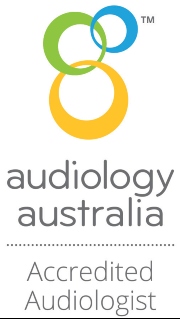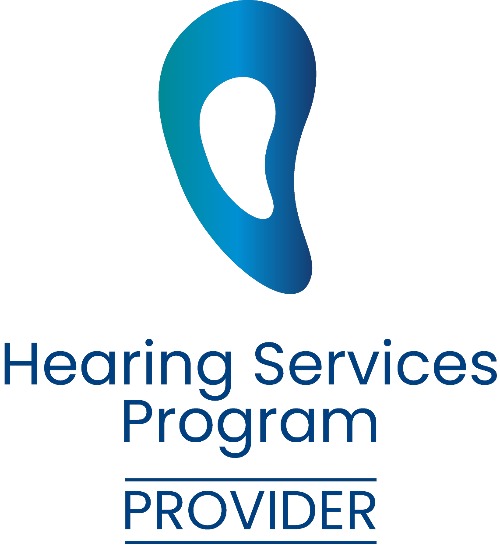Do I have a hearing loss?
Do I know have a hearing loss?

How common is it to experience a hearing loss?
Whilst it can be frustrating and even isolating to experience a hearing loss, it's vital to remember that you’re not alone!
3.6 million Australian adults are affected by a hearing loss, especially for those over the age of 50. 1 in 3 people suffer from a hearing loss over the age of 50, and the figure grows to 1 in 2 for those aged over 60.
Common causes of hearing loss
Depending on the type of hearing loss, there can be various causes. The most common causes of hearing loss are:
- Ageing – this is typically a gradual process, often not recognisable for many years
- Noise exposure, sustained or at high volume
- Viral infections, such as measles or mumps
- Ear infections
- Wax build-up
- Perforated eardrum
- Foreign object in ear canal
- Injury or trauma
- Otosclerosis – a form of abnormal bone growth within the middle ear
Can COVID-19 (coronavirus) cause a hearing loss?
A UK study found that a 45-year-old man developed tinnitus and sudden hearing loss in one ear after becoming critically ill with COVID-19, and given the medication administered had no known hearing-related side-effects. (1)
Scientists from The University of Manchester and Manchester Biomedical Research Centre estimate 7.6% of people infected with COVID-19 experience hearing loss, while 14.8% suffer tinnitus. They also found the prevalence of vertigo was 7.2%. (2)
Sadly in March 2021, Texas Roadhouse announced that the company's CEO and founder died by suicide after suffering from severe tinnitus linked to a recent COVID-19 infection. Kent Taylor "battled and fought hard like the former track champion that he was, but the suffering that greatly intensified in recent days became unbearable." (3)
More significant research needs to be conducted on the long-term effects COVID-19 has on an individual’s hearing and whether or not it may cause hearing loss or tinnitus (ringing in the ears).

What are the signs of a hearing loss?
There are a range of signs of a hearing loss, however, each individual case will differ and hence some signs will be more prominent in certain instances than others.
If you answer YES to one or more of the following questions, you may be experiencing hearing loss:
- Do you often request people either repeat themselves or speak slower, clearer or louder? And to stop mumbling?
- Do you turn the volume up when watching TV or listening to the radio? Do others ask you to turn the volume down?
- When you're in a crowd in the presence of background noise, do you find it difficult understanding what people say? Do you find it hard to separate the speech from the background noise?
- Do you often avoid group discussions or noisy environments, where it can be difficult to follow conversations?
- Do you find it difficult determining which direction sound is coming from?
- Do you find that you need to concentrate to understand what people say, which can quickly become tiring?
- Do you have a history of sustained exposure to noise, such as at your workplace, attending concerts, clubs?
What should I do if I think I have a hearing loss or if I know someone who may have a hearing loss?
80% of hearing loss cases can be successfully treated and managed. If any of the above signs are relevant to your situation or to the situation of someone you know, whether the struggle to hear is in one ear or both ears, it is vital to seek medical attention from an Audiologist.
Your Audiologist will diagnostically evaluate your hearing, including whether the hearing loss is permanent or temporary, and the specific type of hearing loss it may be. You will be then best positioned to discuss next steps and strategies to help resolve and manage your hearing loss.
Some may find the process dealing with a hearing loss a little confronting so we recommended a friend or family member accompany you to the initial appointment.

What are the effects of an untreated hearing loss?
While in many cases untreated hearing loss does not cause physical harm (unless there is an underlying pathology), hearing loss usually has an adverse social and psychological impact.
- Social isolation and loneliness – uncomfortable and not confident joining social situations
- Employment struggles – men with a hearing loss are 20% less likely to have employment, and women 16% less likely
- Loss of confidence and/or damaged self-esteem
- Depression and/or anxiety
- Frustration and anger
- Increase risk of memory loss, cognitive function and decreased ability to learn
Could my child have a hearing loss?

It is not uncommon for a child to experience a hearing loss at some point – it is estimated 15% of children experience some type of hearing loss, however, in most cases the loss is minor and in one ear.
Signs of hearing loss in babies and toddlers:
- My child is not surprised by loud noises
- My child only responds to certain sounds
- After 6 months, my child doesn’t turn toward the source of a sound and will only notice me when they see me
- After 14 months, my child doesn’t respond to their own name or can’t say simple words
Signs of hearing loss in children:
- My child's speech is delayed and/or not clear
- My child often says “huh?” or needs people to repeat themselves when talking to them
- My child turns the TV volume up much higher than the rest of the family
The effects of an untreated hearing loss among children include:
- Delays in speech and language development
- Delays in development of learning, social and perceptual skills
- Social isolation
- Decline in confidence and self-esteem
- Anxiety
- Frustration and anger
What should I do if I think my child may have a hearing loss?
An initial hearing screening is a very easy and painless process which will only take a few minutes to complete.
All babies should have a hearing screen within the first month, which is generally completed while still in the hospital. If you have concerns, a hearing screening should be completed before your child starts school.
If your child doesn’t pass the initial screen, a full hearing test should be completed as soon as possible.
The information on this website is not intended to be a substitute for professional clinical advice. Diagnosis and treatment of a clinical condition can only be undertaken by a qualified health professional.
(1) Covid may cause sudden, permanent hearing loss – UK study, 14 October 2020, The Guardian - www.theguardian.com/world/2020/oct/13/covid-may-cause-sudden-permanent-hearing-loss-uk-study
(2) Evidence supports Covid hearing loss link, say scientists, The University of Manchester, 22 March 2021 - www.manchester.ac.uk/discover/news/evidence-supports-covid-hearing-loss-link-say-scientists/
(3) Kent Taylor, Texas Roadhouse Founder and C.E.O., Dies at 65, New York Times, 21 March 2021 - www.nytimes.com/2021/03/21/business/kent-taylor-dead.html
Contact HEARING SAVERS on 1800 00 4327 should you have any concerns about your hearing, or the hearing of a friend or family member.
























